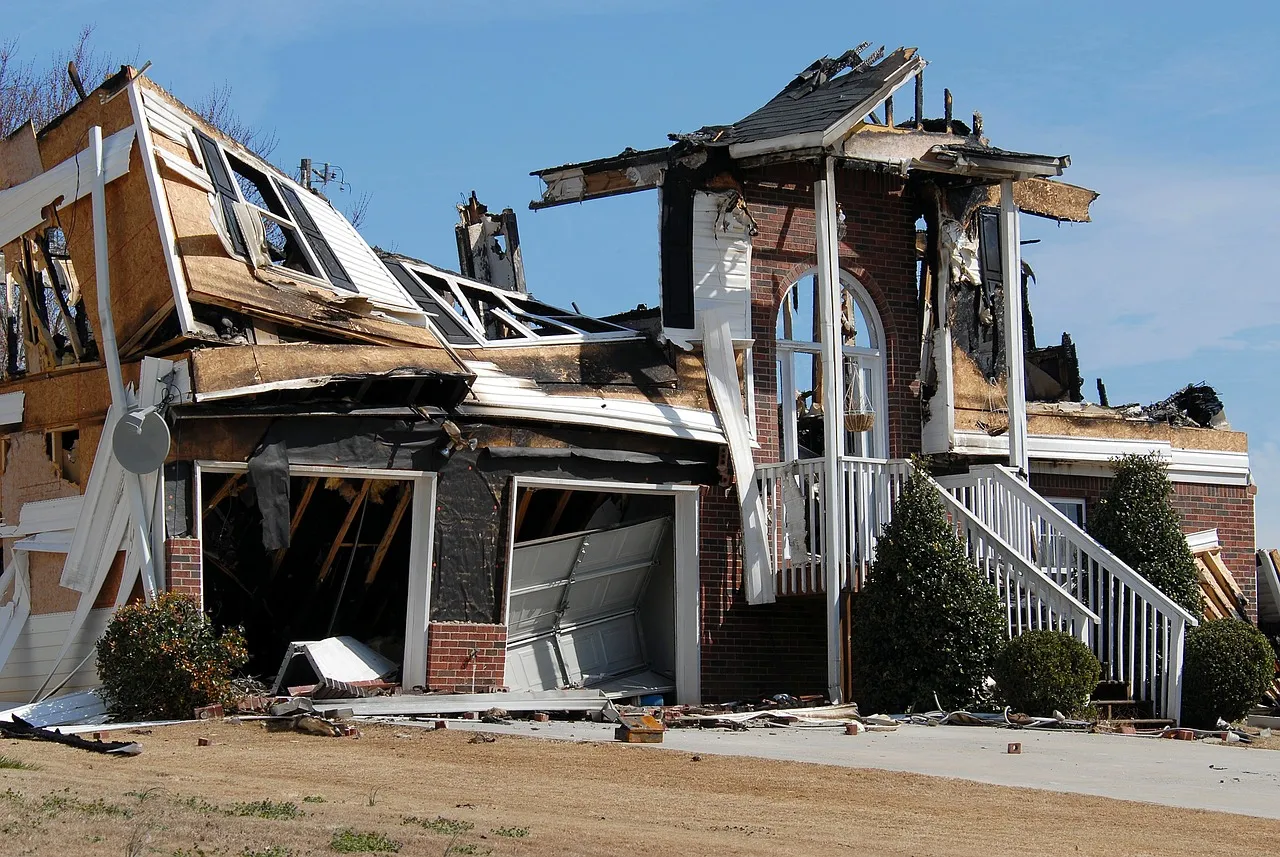In the face of unexpected events like natural disasters or accidents, having property insurance can be crucial to your ability to recover, rebuild, and get your property back in shape. For many people in Louisiana, this protection is obtained through Louisiana Citizens Insurance. However, understanding the ins and outs of how to file a Louisiana Citizens property insurance claim can seem daunting. This comprehensive guide will demystify the process, and provide you with all the information and tools you need to navigate the claims process smoothly.
1. Initiating the Claim:
The first step in the journey towards getting your money after your property is damaged is initiating the claim. While we talk about “making a claim” or “filing a claim” or “reporting a claim” under your insurance policy coverage, the claim is really just a few pieces of information provided to your insurer. Louisiana Citizens Insurance, like many insurance companies, often calls these pieces of information a “First Notice of Loss” – which is exactly what it sounds like. A first notice of loss is just giving the insurer notice that a loss has occurred. Louisiana Citizens Insurance offers several avenues through which you can report a claim:
- Phone: Contact the Louisiana Citizens Insurance claims hotline at 1.888.568.6455 – option 3, to speak with a representative and report your claim.
- Online: Visit the Louisiana Citizens Insurance website and log in to your account to report a claim here, if you do not have an account you will need to create one here before submitting your claim information online.
- Via Your Agent: You can also report your claim by contacting your agent, also called a “Producer” and having them initiate the process through a different online portal.
- Use Technology: Another way to make the claims process easier, quicker, and more streamlined is to use software as a virtual assistant to help you make your claim. Through an easy online experience, you can be guided through providing the required information to make sure you don’t miss a step, and have a virtual assistant contact your insurance to initiate your claim. You can then be in a position where you know everything was done correctly, and even have the necessary information and deadlines to follow-up.
When reporting your claim, be sure to have certain information handy including:
- Your policy number;
- The address of the damaged property;
- The date the loss occurred;
- The cause of the loss;
- If possible, a description and/or estimate of the loss or damage.
It is important to provide as much detail as possible about the damage sustained by your property, but it is equally important to stick to facts and not limit or exaggerate the damages.
Once your claim has been reported through any of the above means, Louisiana Citizens will provide a claim number, and will assign a claim examiner to work with you through the claims process.
2. Documentation and Evidence:
As soon as you are reasonably able to do so, it’s critical to gather and document evidence to support your case. This may include:
- Photographs: Take clear, detailed photographs of the damage to your property from multiple angles.
- Inventory: Create an inventory of any damaged or destroyed items within your home, including their estimated value. The more information you can provide here, the better, as Louisiana Citizens may ask for age, model, serial number, proof of ownership, and more, for each item.
- Receipts and Documentation: Keep any receipts or documentation related to repairs, replacements, or temporary accommodations necessitated by the damage.
- A Sworn Proof of Loss form
A proof of loss can be extremely important to a successful property insurance claim. While an insurer can require a “sworn proof of loss” that requirement has very little actual teeth in Louisiana, however, it is always in your best interest to provide strong documentation to your insurer providing evidence of the loss sustained, and the value of the claim.
Even if not specifically requested, providing your own proof of loss document to your insurer can jump-start the process toward getting you a check to cover your losses. In Louisiana, there are specific deadlines that govern property insurance claims, adjustments, and payments, and some of these are measured from providing a “satisfactory proof of loss.”
Additionally, Louisiana Citizens Insurance will need to begin the assessment and adjustment of your claim. The assessment and adjustment of your claim may include:
- Inspection: A claims adjuster may visit your property to assess the extent of the damage and determine the appropriate course of action. This may not be required in every case, but if it is required, Louisiana Citizens will contact you to schedule an inspection by one of their partner field adjusters. You may have a contractor who is familiar with your property or who has done work in the past present for an inspection if you wish, and in some cases, you may want to get your own independent inspection and appraisal of damages to the property from your own adjuster.
- Estimation: Based on the assessment, Louisiana Citizens Insurance will provide an estimate of the cost to repair or replace the damaged property.
- Negotiation: You may have the opportunity to negotiate with the insurer regarding the proposed settlement amount. Be prepared to provide additional evidence or documentation to support your case.
Thorough documentation will streamline the claims process and increase the likelihood of a successful outcome.
3. Important Dates and Deadlines:
In the aftermath of a property damage incident, it’s essential to be mindful of important dates and deadlines associated with your insurance claim. These may include:
- Reporting Deadline: It is generally the case that a property damage claim must be reported to your insurance provider within a reasonable amount of time. It is important, however, to check your Louisiana Citizens Insurance policy for any applicable deadlines to make your claim, as the longstanding rule in Louisiana is that the insurance contract is the law between the parties. Be sure to initiate your claim promptly to avoid missing out on coverage. Note, however, that Louisiana has special timelines in the event of a declaration of a state of disaster, or state of emergency. In those situations, the language of the policy can be overriden and a much longer time period allowed.
- Documentation Deadline: There may also be a deadline for submitting documentation and evidence to support your claim. Adhering to this deadline will prevent unnecessary delays in the claims process.
- Deadlines for Louisiana Citizens: It’s not just you, your insurance company also has deadlines that they must be careful to meet. And, luckily for you, these timelines are relatively short and designed to keep your claim moving. Specifically:
- In normal circumstances Louisiana Citizens must begin the process of adjusting your claim within 14 days from receiving notice of your loss. This deadline can be extended to 30 days in the event of a “catastrophic loss” and extended an additional 30 days if there is a declared emergency. However, no additional extensions are allowable without a vote of each of the Senate Committee on Insurance and the House Committee on Insurance, voting separately, and even then, only one additional extension could apply. Failure to comply with the applicable deadline subjects the insurer to penalties.
- In Louisiana insurers are required to pay any undisputed portion of your property insurance claim (and make an offer to settle) within 30 days from their receipt of “satisfactory proof of loss”. This is one reason why, as discussed above, creating your own proof of loss document and submitting it to Louisiana Citizens Insurance, even if they don’t specifically ask you for one, can streamline your claim and payment. Just like the deadline to initiate adjustment of your claim, insurers can be subject to harsh penalties in some cases if they do not comply with this payment timing requirement.
- Deadlines to File Suit: Nobody wants an insurance claim to devolve into a lawsuit against your insurer, but it does happen. In Louisiana you may have a suit against your insurance company for bad faith and associated penalties (as described above) as well as for payment of your claim. While generally in Louisiana, a breach of contract suit may be filed up to 10 years from the breach, insurers are able to limit the your right of action “against the insurer to a period of [not less than] than twenty-four months next after the inception of the loss” through language in the insurance contract. Failing to file within the prescribed timeframe could result in forfeiture of your right to compensation, so make sure to keep that in mind.
Stay organized and keep track of these dates to ensure that your claim proceeds smoothly and efficiently.
4. Resolution and Payment:
Once the assessment and adjustment process is complete, Louisiana Citizens Insurance will issue a resolution regarding your claim. This may involve:
- Approval: If your claim is approved, Louisiana Citizens Insurance will issue payment for the covered damages, minus any applicable deductibles.
- Denial: In some cases, Louisiana Citizens Insurance may deny your claim. If this occurs, you have the right to appeal the decision and provide additional evidence to support your case.
It’s important to review the resolution carefully and ensure that you understand the terms and conditions of the settlement before accepting payment.
5. Follow-Up and Communication:
Throughout the claims process, effective communication with Louisiana Citizens Insurance is key. Be proactive in following up on the status of your claim and addressing any questions or concerns that may arise. Maintain thorough records of all communication, including dates, times, and the names of any representatives you speak with.
By staying informed and engaged, you can ensure that your claim is processed efficiently and that you receive fair compensation for the damage to your property.
In conclusion, navigating the property insurance claim process with Louisiana Citizens Insurance requires diligence, organization, and effective communication. By following the steps outlined in this guide and staying proactive throughout the process, you can maximize your chances of a successful outcome and secure the compensation you deserve for your property damage. Remember to document the damage, adhere to important deadlines, and maintain open lines of communication with your insurer. With careful attention to detail and persistence, you can navigate the claims process with confidence and peace of mind.



